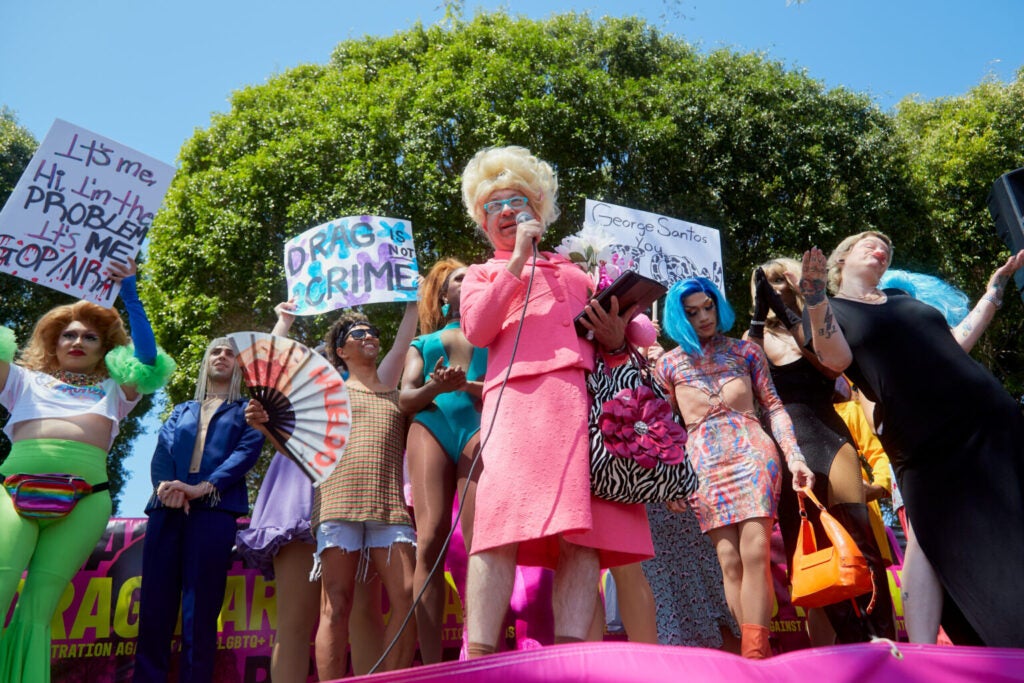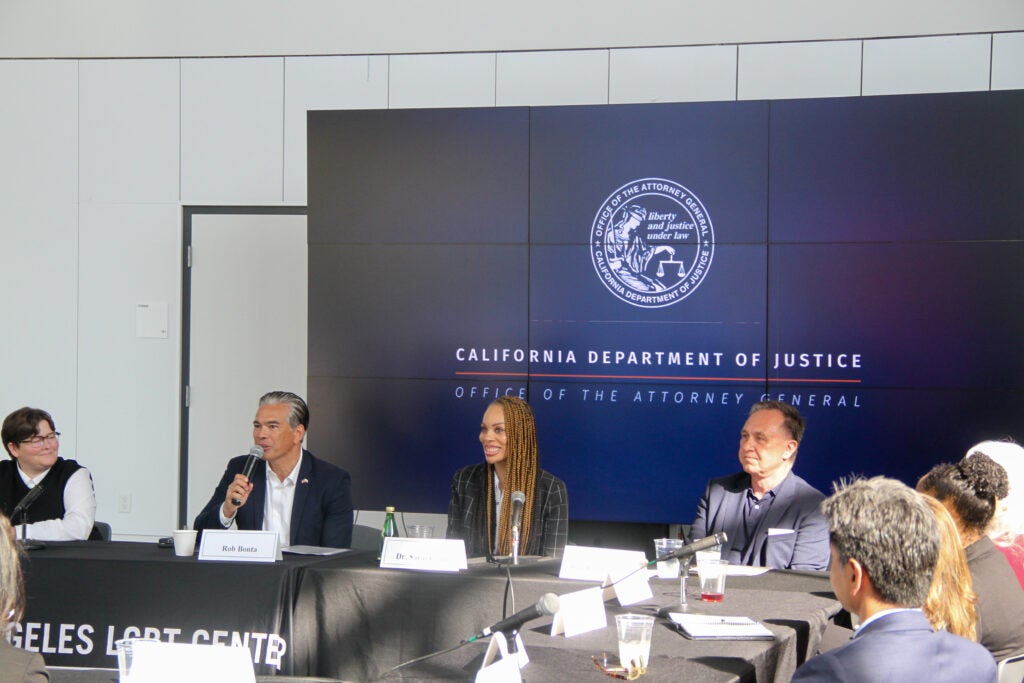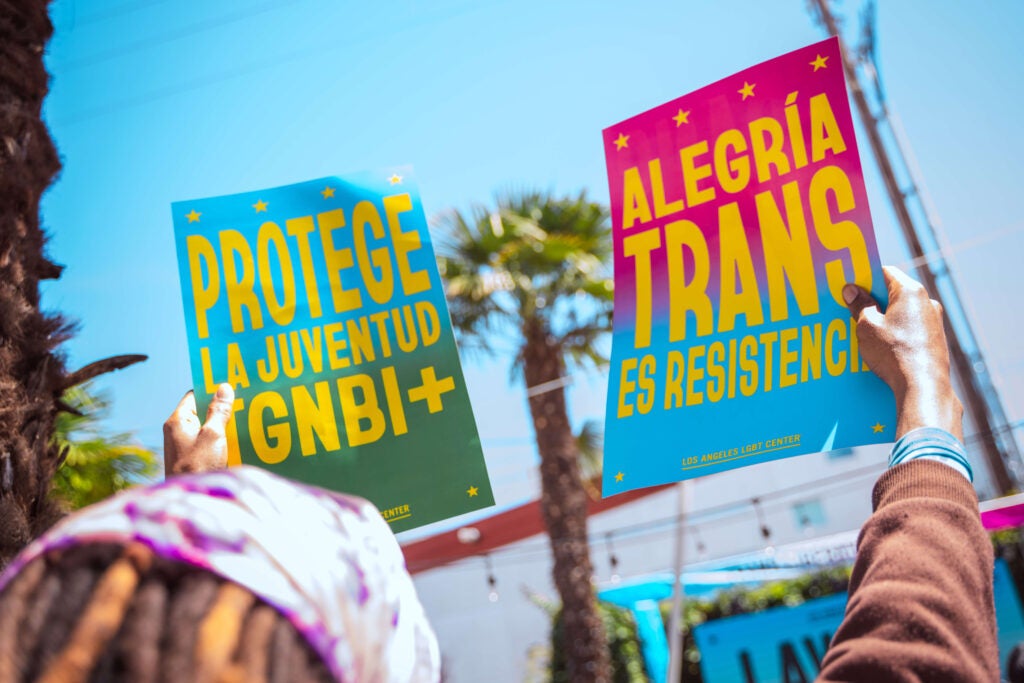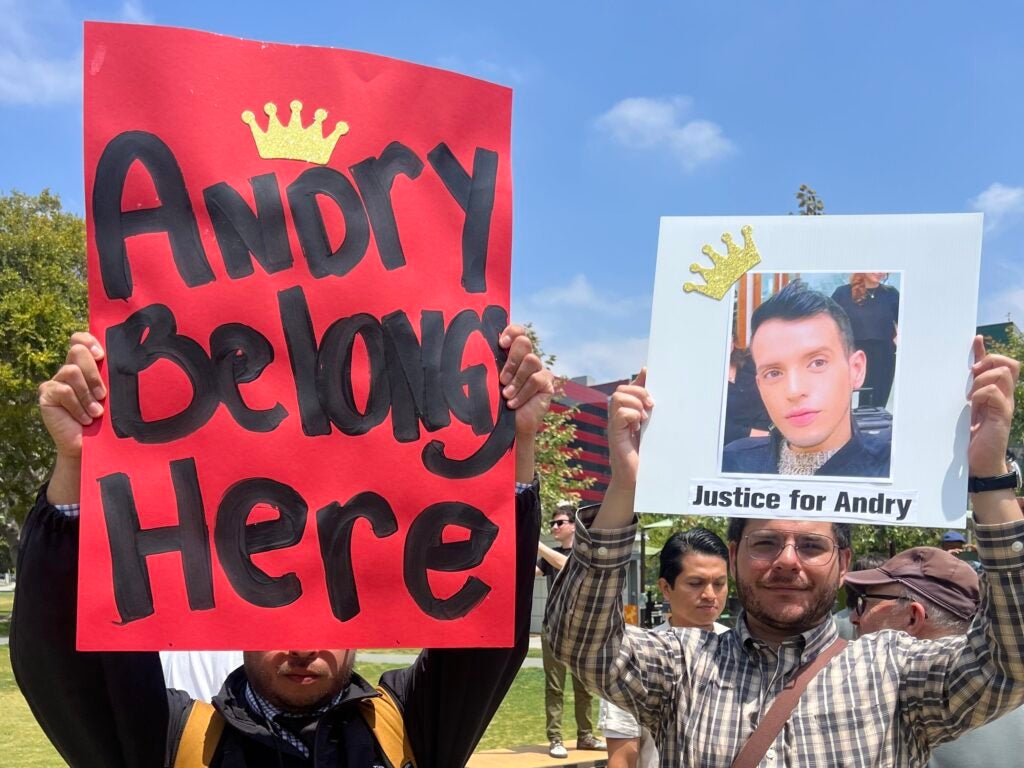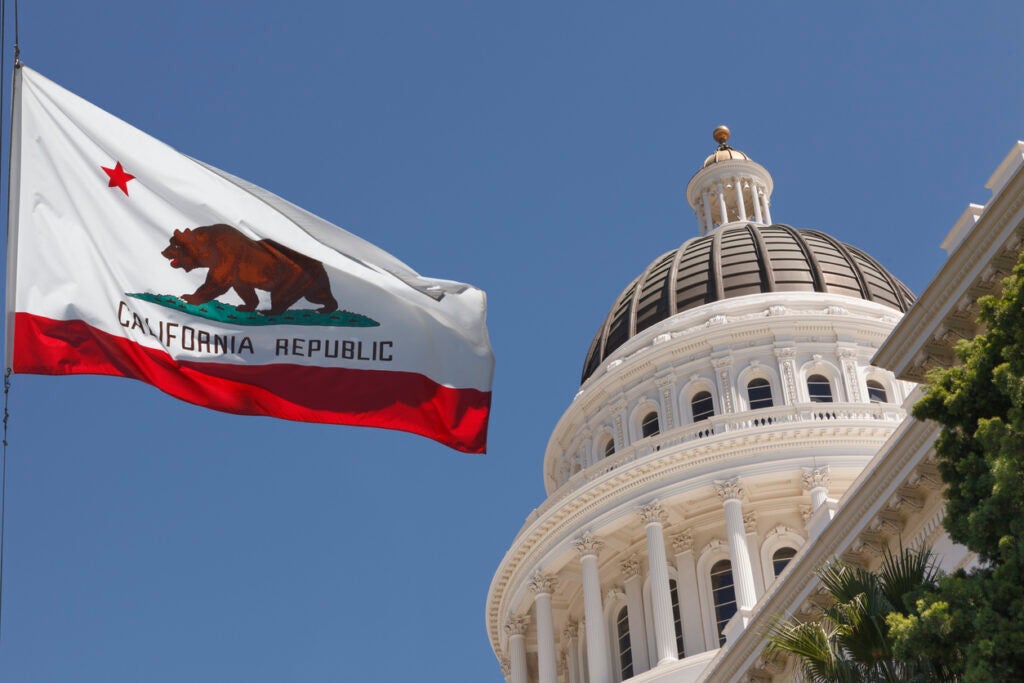On Friday, California Attorney General Rob Bonta visited the Los Angeles LGBT Center for a roundtable discussion with advocates, service providers, and community leaders about how the state can best serve survivors of intimate partner violence and put an end to future harm.
“Every October, we have the opportunity to pause and recognize two things, Domestic Violence Awareness Month, and LGBTQ+ History Month,” Bonta said. “Sadly, domestic and intimate partner violence is one of the largest and most pressing issues facing the LGBTQ+ community, including female-identifying and gender-expansive individuals.”
LGBTQ+ individuals—especially trans folks and bisexual women—experience intimate partner violence at higher rates than the general population. BIPOC LGBTQ+ individuals are at particularly high risk.
As anti-LGBTQ+ legislation rises to an all-time high rate in this country, service providers and advocates are now witnessing how the safety of LGBTQ+ survivors is also being threatened, including through increasing stigma, eroding legal protections, and attacks targeting the LGBTQ+ community that put survivors at increased risk.
“A lot of time, the issues and conversations around domestic and sexual violence, power-based harm, gender-based violence and harm are usually looked at as a woman’s issue or an issue that just affects those people. The reality is that it affects all people from all walks of life,” said Dr. Sarai Crane, a longtime advocate for survivors of intimate partner violence and the first-ever sexual assault evidence outreach coordinator for the California Attorney General’s Office.

The Center’s Terra Russell-Slavin, Chief Impact Officer and founder of the National Institute for Intimate Partner Violence, co-hosted the panel and remarked on the need for an intersectional approach to solving issues of anti-LGBTQ+ bias, intimate partner violence, and more: “I want you to know that the Los Angeles LGBT Center is fighting back at the local, state, and national levels … because we know it’s not just targeting LGBTQ+ issues. Our issues are intersectional. When we talk about survivor services, when we talk about racism, when we talk about anti-LGBTQ+ attacks, these are intersectional issues. Right-wing extremists are coming for us, and we need to be fighting back.”
Life-saving and essential DV/SA support services rely on funding streams from the Violence Against Women Act (VAWA), Family Violence and Prevention Services Act (FVPSA), and the Victims of Crime Act (VOCA).
This year, VOCA is facing a 40% budget cut, which means that DV/SA service providers across the country will have to reduce services—or worse, close their doors altogether. VOCA provides critical funding streams toward underserved communities of survivors, prioritizing funding to services that serve those most marginalized, including LGBTQ+ survivors. These cuts jeopardize essential legal support and social services that LGBTQ+ survivors need to establish safety and heal from domestic and sexual violence.
The Center is at the forefront of ensuring that support services for LGBTQ+ survivors of sexual violence and intimate partner violence are culturally responsive and meet the unique and specific needs of LGBTQ+ survivors. Expanding on the work that the Center has done in Los Angeles, the overarching goal of the National LGBTQ Institute on Intimate Partner Violence is to significantly enhance the safety, well-being, support, and health of LGBTQ+ IPV survivors throughout the United States.
Right-wing extremists are coming for us, and we need to be fighting back.
Terra Russell-Slavin, Chief Impact Officer, Los Angeles LGBT Center
In addition to Bonta and other representatives from his officer, attendees at the roundtable included California State Assemblymember Rick Chavez-Zbur, Patti Giggans of Peace Over Violence, Jamie Kennerk of Planned Parenthood LA, Desirée Portillo Rabinov of the Glendale Community College Board of Trustees, Bamby Salcedo of the TransLatin@ Coalition, Destine Teves Borrego of the California Clinical Forensic Medical Training Center, Tishe Tighe of the UCLA Santa Monica Rape Treatment Center, Malinda Wheeler of the California Sexual Assault Forensic Examiners Association, and Abigail Tapang Zelenski of the LA Commission on Civil Rights.
Topics discussed included the need for increased funding for survivor resources and service providers, the importance of cross-organizational collaboration, and ways to center communities that are disproportionately impacted by intimate partner violence.

According to the U.S. Transgender Survey, transgender people experience higher rates of sexual violence and intimate partner violence, with BIPOC transgender respondents reporting disproportionately higher rates. 54% of transgender people report experiencing domestic violence at some point in their lifetime.
40% of youth who are experiencing homelessness are LGBTQ+, with family rejection and abuse serving as key factors in their leaving home. Youth who experience family rejection are more vulnerable to teen dating violence.
A recent report from the Centers for Disease Control and Prevention found that the LGBTQ+ community faces higher rates of sexual violence and intimate partner violence, with BIPOC LGBTQ+ people and bisexual women at particularly high risk.
Lesbian, bisexual, and gay people experience higher rates of sexual violence than heterosexual people.
- 56.3% of lesbian women, 69.3% of bisexual women, and 46.3% of heterosexual women in the U.S. experienced some form of intimate partner violence during their lifetimes.
- 47.7% of gay men, 46.1% of bisexual men, and 44.1% of heterosexual men in the U.S. experienced some form of intimate partner violence during their lifetimes.
Lesbian, bisexual, and gay people experience higher rates of intimate partner violence than heterosexual people.
- 56.3% of lesbian women, 69.3% of bisexual women, and 46.3% of heterosexual women in the U.S. experienced some form of intimate partner violence during their lifetimes.
- 47.7% of gay men, 46.1% of bisexual men, and 44.1% of heterosexual men in the U.S. experienced some form of intimate partner violence during their lifetimes.
Bisexual women experienced an alarmingly high lifetime prevalence of all forms of violence.
- In their lifetimes, 4 in 5 bisexual women experienced some form of sexual violence, 1 in 2 reported being stalked, and 7 in 10 experienced intimate partner sexual violence.
- Latinx bisexual women, in particular, experienced the highest rates of any other racial group. With 93.6% of Hispanic bisexual women reporting sexual violence and 79.7% of Hispanic bisexual women experiencing intimate partner violence.
Hospitals, mental health professionals, social service providers, and law enforcement often don’t take the same precautions or offer the same protections for LGBTQ+ survivors as they do with cisgender and heterosexual survivors. This lack of protection, resources, and support can make it more dangerous and difficult for domestic violence survivors to exit abusive relationships safely and rebuild in the aftermath of abuse.
“Violence is not an accident. It’s not inevitable. It can be prevented,” Bonta said. “To all those who have experienced the terrible trauma of domestic violence, I want you to know that I see you, I will fight for you, I will fight with you, and you are not alone.”
Ways to Help Survivors:
- Let your friends know you’re a safe person to talk to about their relationships.
- Listen, support, and believe without pressuring them to leave.
- Don’t judge survivors in their decisions; respect their autonomy.
- Help survivors create a safety plan and access necessary support.
From training and technical assistance that significantly expands the capacity of public and private agencies to provide culturally relevant, survivor-centered LGBTQ+ IPV intervention and prevention services to conducting research and overseeing policy initiatives, the Institute will continue to stand with and support survivors and service providers this Domestic Violence Awareness Month and beyond.
We can help create safety for our community by ending the silence on domestic violence and showing up for survivors in our community. Learn more about how to support LGBTQ+ survivors of intimate partner violence by visiting: https://lgbtqipvinstitute.org/
Read More
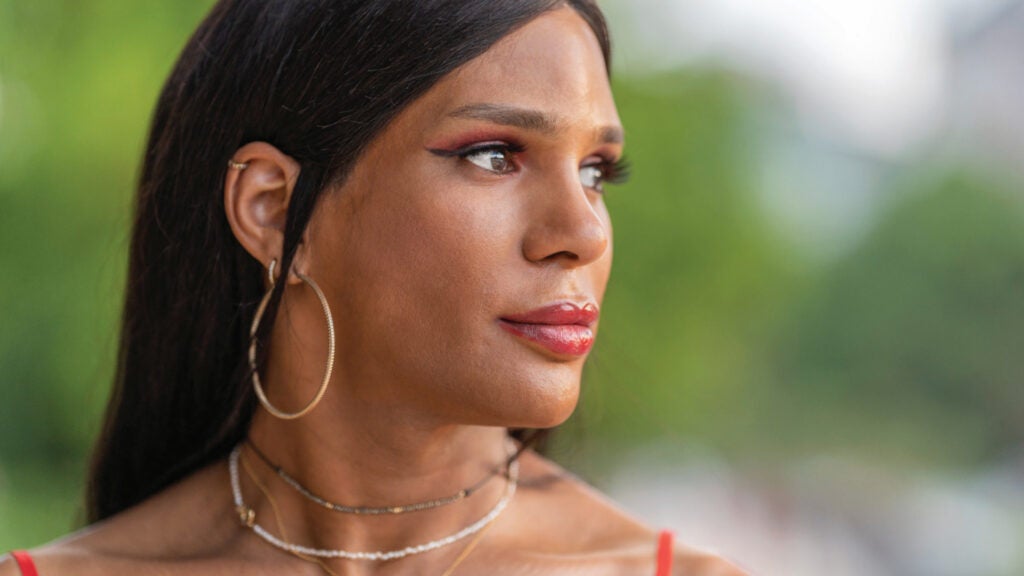
The Right Is Trying to Ban Trans People from Domestic Violence Shelters in the US
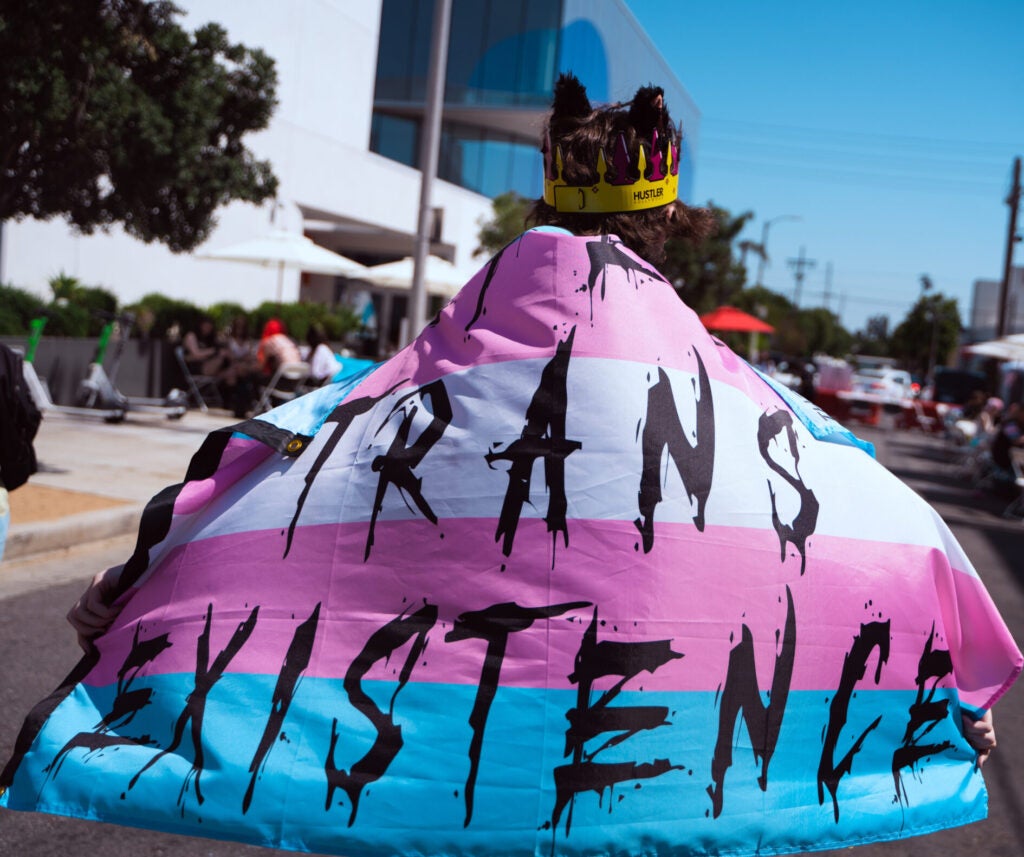
California Judge Blocks Policy Targeting and Outing Trans Students
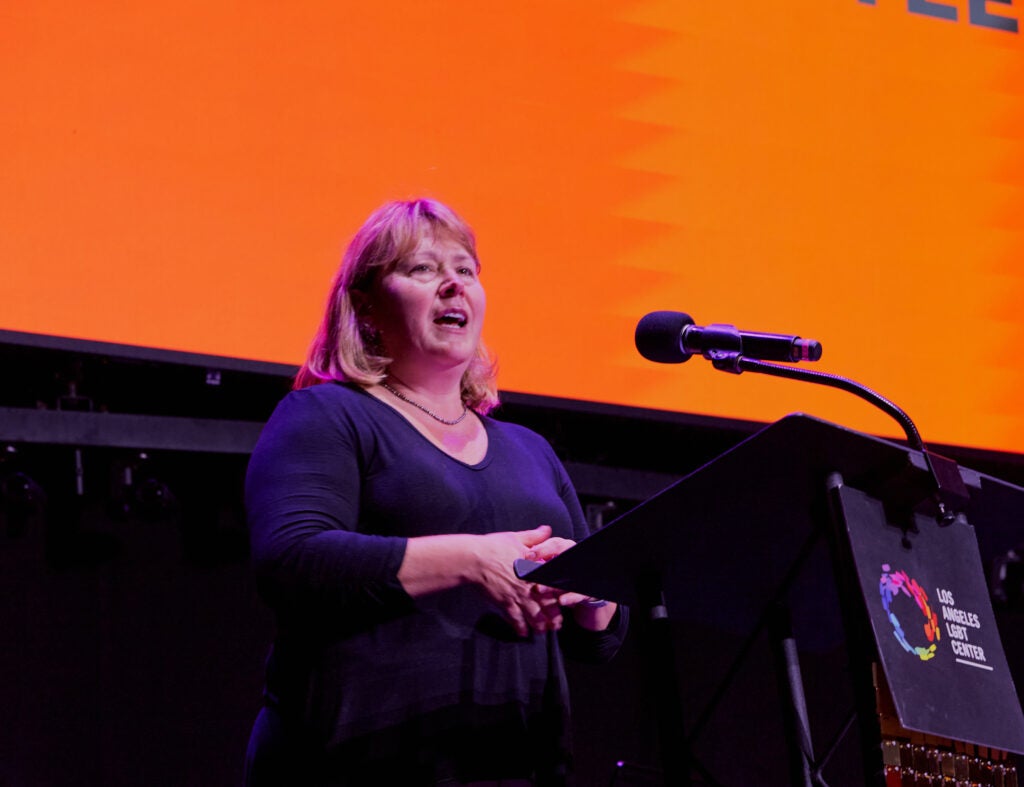
Cynthia “Cyndi” Harrison Honored with Inaugural Sharon Franklin Brown Award for Employee Excellence, Celebrating 24 Years of Service
